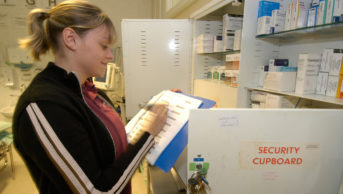
General Pharmaceutical Council (GPhC)
The General Pharmaceutical Council (GPhC) is pushing ahead with its controversial proposal to amend professional standards which means pharmacists cannot put their own religious or other beliefs ahead of providing patient-centred care.
The proposal to alter the wording of the standards triggered 3000 comments – the highest ever number of responses to a GPhC public consultation, the regulator revealed before approving the revisions at its meeting last week (6 April).
The new standards, which come into force in May, introduce a significant shift in the pharmacist–patient relationship, where providing patient-centred care should be put first.
Under the changes, a pharmacist will not always have the option to refer a patient to another provider if he or she feels offering certain treatment, such as emergency hormonal contraception, routine contraception or fertility medicines, compromises their religious or other beliefs.
Professional guidance to help pharmacists understand how to meet the new standards is due to be approved by the GPhC at its meeting in June 2017. It will spell out how the standards can be applied in practice, the options for referral and responsibilities of employers.
Last week, the regulator revealed that the profession was split about the changes. During the consultation some pharmacists argued that the new standards potentially breached their European human rights, while others felt that the changes did not go far enough in protecting the rights of patients seeking pharmacy services.
The GPhC, however, confirmed in its report to council that it has not “identified anything which is legally flawed or otherwise incompatible with the current framework of human rights and equality law”.
“Overall, we remain of the view that the proposals are fair, justified and better reflect person-centred professionalism.”
You may also be interested in

Health and wellbeing included in updated RPS hospital pharmacy standards for the first time

Pharmacists to be barred from automatically registering as pharmacy technicians
